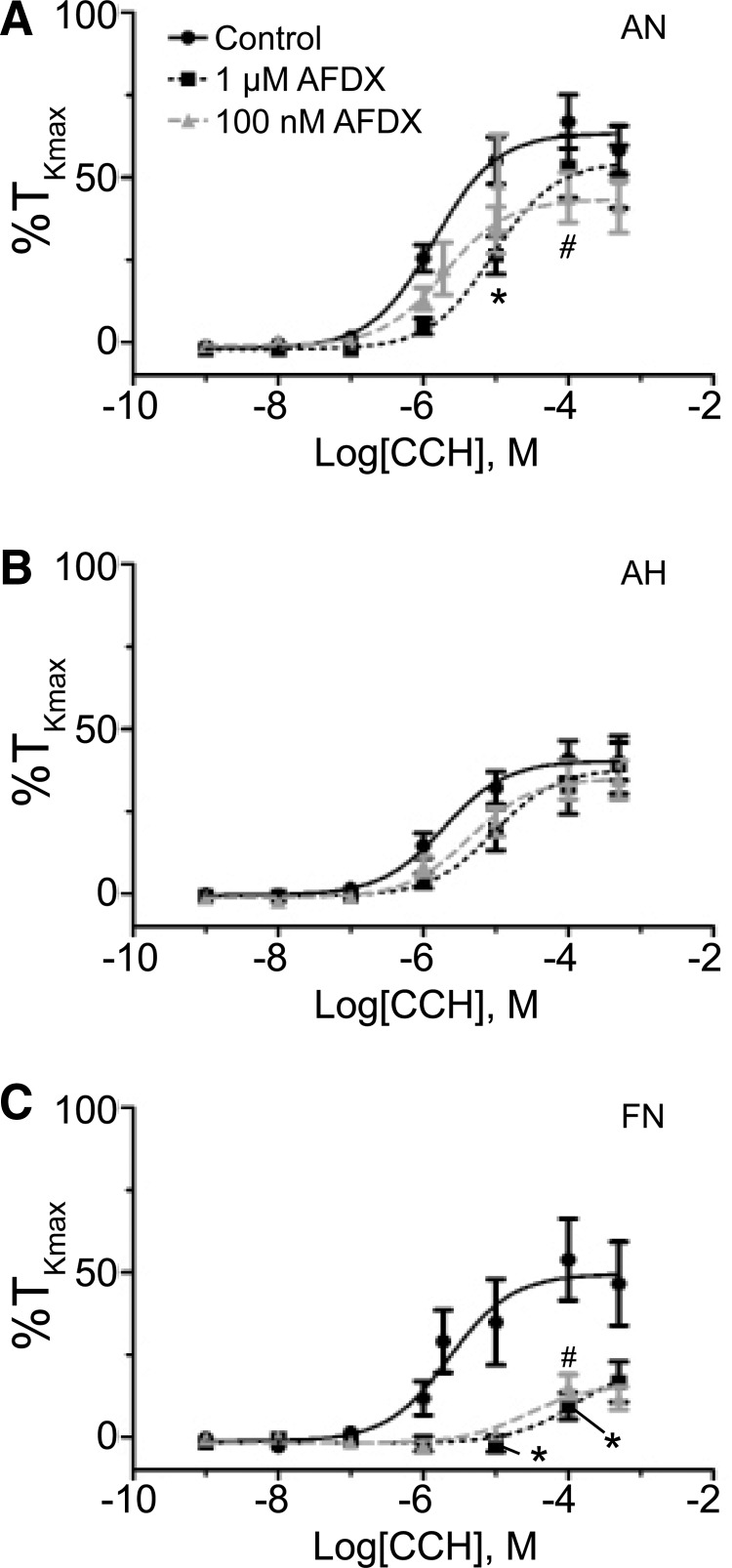FIG. 6.
The M2 receptor is important to muscarinic-mediated contraction in pulmonary arteries from fetal and adult normoxic sheep. Dose–response curves of pulmonary arterial rings to 1 nm–100 μM carbachol (CCh) added in a cumulative manner normalized to %TKmax following addition of 100 nM or 1 μM of AFDX for adult normoxic (A), adult hypoxic (B), and fetal normoxic (C) animals. The control response is depicted with filled black circles with solid line. The 1 μM AFDX response is represented with filled black squares and a dashed line, while the 100 nM AFDX response is shown with filled gray triangles and a dashed line. Lines show resultant fits with a Hill equation to the dose–response relationships, and markers show mean ± SEM. The data were analyzed by two-way ANOVA with a Bonferroni post-test analysis for each dose compared to control. Statistical significance is noted between control and 1 μM AFDX group (*p < 0.05) and control and 100 nM AFDX group (#p < 0.05). AFDX adult normoxic data are based on 21 (100 nM) and 25 (1 μM) arteries (6 and 9 animals, respectively), adult hypoxic data are based on 12 (100 nM) and 17 (1 μM) arteries (3 and 6 animals, respectively), and fetal normoxic data are based on 8 (100 nM) and 12 (1 μM) arteries (4 and 5 sheep, respectively).

